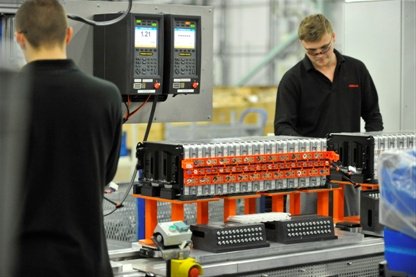(REPOST: Clean Energy)
The High Energy Density Battery (HEDB) project was one of the winning projects under a competition run in 2015 by the Advanced Propulsion Centre (APC), in partnership with government. It set out to invest up to £60 million in collaborative research and development funding to support the development of low carbon, low emission automotive propulsion technologies.

The HEDB project – led by Nissan alongside Zero Carbon Futures, Hyperdrive Innovation and Newcastle and Warwick Universities – won £9.5 million and was completed this month.
The new battery cells will be produced for the UK and European markets with battery manufacturer Hyperdrive Innovation set to use the high density cells for both EVs and stationary storage. The project has included the design of a new universal, modular energy storage system and installation of a pilot line for prototyping and pack assembly at its own plant, also in Sunderland.
Jon Beasley, director of technology and projects at the APC, said: “This project exemplifies the value of consortia projects, with partners working together to exploit their capabilities, both jointly and individually.”
The first applications have already been used construction machines, municipal vehicles, airport ground fleets and autonomous vehicles, while a commercial agreement with Nissan will see the battery cells incorporated into modular and bespoke design systems.
Stephen Irish, managing director – commercial at Hyperdrive Innovation, said: “The HEDB project has been pivotal in developing the UK and the North-East in particular as a global player in battery technology.


